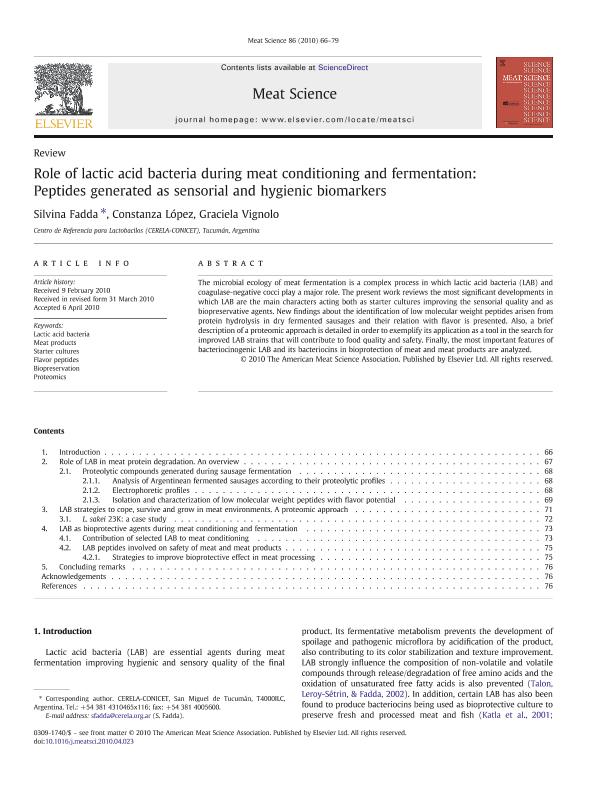Artículo
Role of lactic acid bacteria during meat conditioning and fermentation: Peptides generated as sensorial and hygienic biomarkers
Fecha de publicación:
09/2010
Editorial:
Elsevier
Revista:
Meat Science
ISSN:
0309-1740
e-ISSN:
1873-4138
Idioma:
Inglés
Tipo de recurso:
Artículo publicado
Clasificación temática:
Resumen
The microbial ecology of meat fermentation is a complex process in which lactic acid bacteria (LAB) and coagulase-negative cocci play a major role. The present work reviews the most significant developments in which LAB are the main characters acting both as starter cultures improving the sensorial quality and as biopreservative agents. New findings about the identification of low molecular weight peptides arisen from protein hydrolysis in dry fermented sausages and their relation with flavor is presented. Also, a brief description of a proteomic approach is detailed in order to exemplify its application as a tool in the search for improved LAB strains that will contribute to food quality and safety. Finally, the most important features of bacteriocinogenic LAB and its bacteriocins in bioprotection of meat and meat products are analyzed.
Archivos asociados
Licencia
Identificadores
Colecciones
Articulos(CERELA)
Articulos de CENTRO DE REFERENCIA PARA LACTOBACILOS (I)
Articulos de CENTRO DE REFERENCIA PARA LACTOBACILOS (I)
Citación
Fadda, Silvina G.; López, Constanza María; Vignolo, Graciela Margarita; Role of lactic acid bacteria during meat conditioning and fermentation: Peptides generated as sensorial and hygienic biomarkers; Elsevier; Meat Science; 86; 1; 9-2010; 66-79
Compartir
Altmétricas




